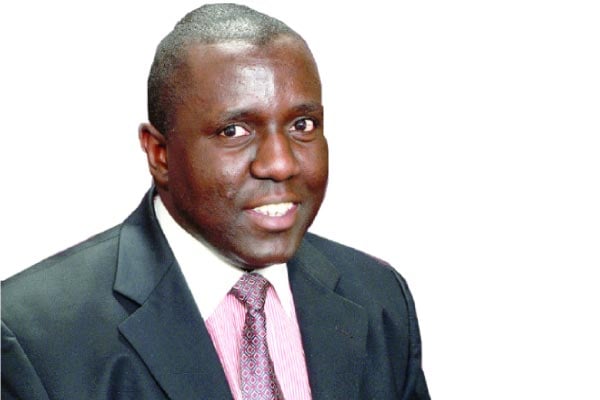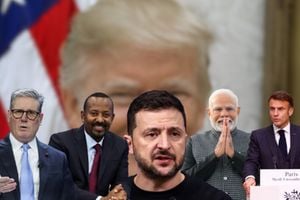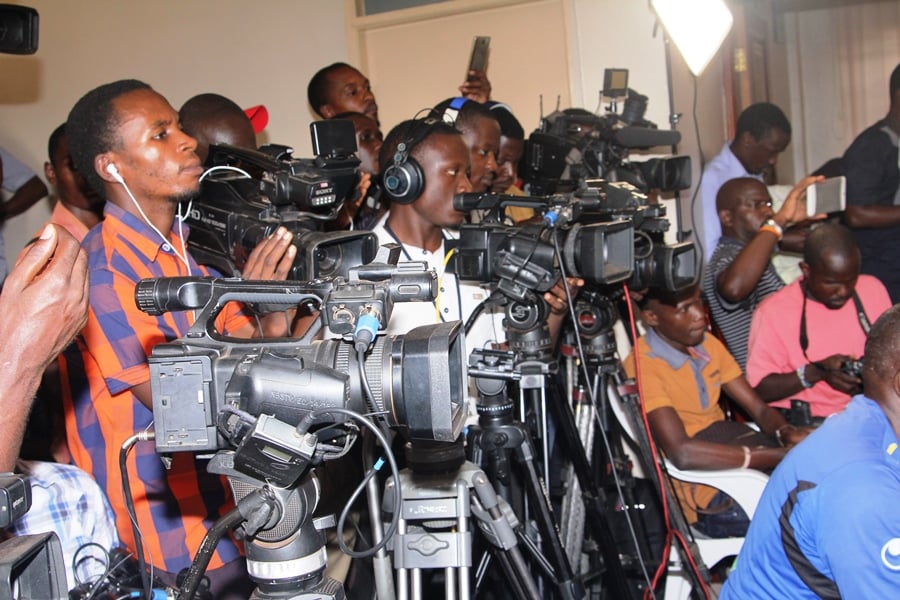
Benjamin Rukwengye
On the morning of this week’s US election, my Nigerian housemate found me watching TV earlier than unusual. “Trump is going to win,” he stated as a matter of fact. “Why?” I asked.
There is a general assumption that because of Trump’s rhetoric and the oft-deranged behaviour of his white supremacist power base, many black people wouldn’t support him. But that is neutered by the fact that he also is the bedfellow of ultraconservatives and evangelicals, so, Bible-waving black people find a common identity with him.
But then there is his bullish misogynistic behaviour that many men – overtly and covertly – have internalized. Interestingly, my housemate didn’t choose his answer from any of those preconceived notions that you will hear floating around.
He has lived in Dublin for close to two decades and while the city is notoriously expensive, the cost of living has shot through the roof in the last 5 years. Why? The war in Ukraine. You might remember that a couple of African governments have also used it as an excuse for the skyrocketing prices of commodities. A few usual suspects went as far as unashamedly receiving donations of grain from Ukraine, and others, hardware from Russia.
But in many European countries, the experience was different. Many Ukrainians ran for safety in whatever city they could get to – which increased the demand for housing, food, and all manner of supplies. Even with its infamous housing crisis, Dublin, according to my housemate, is feeling the hit. Together with NATO, the Biden administration has been Ukraine’s biggest ally.
My housemate thinks that Trump is more inward-looking and will prioritize the US ahead of whatever international community business might exist. But he also feels that the incoming US president has a good relationship with Russia’s President Putin and might be able to work out a deal that ends the conflict. And if that were to happen then perhaps the cost of living might go down. It is not an argument I had heard before, yet it sounded well-reasoned.
“Who are you supporting?” He asked. “I am not sure,” I replied, adding that I didn’t think it mattered because I didn’t think that either candidate would take action against the issue I care most about – ending the genocide in Gaza. All this to say that with President Donald Trump – as with every candidate and election – there is more than one viewpoint. Basically, people who fundamentally disagree could potentially end up supporting one candidate because of how their issues are represented. Which might explain why people vote for whomever they do.
Yet, it is different when you are voting on a single issue – as the case was this week in Uganda’s Parliament. There, the Members of Parliament were presented with an amendment to the National Coffee Act 2021. The act is intended to dissolve the Uganda Coffee Development Authority and transfer its functions to the Ministry responsible for agriculture. Ostensibly, the move aims to rationalize government agencies and reduce public expenditure.
They had been asked by their electorate, coffee farmers, lobby groups, and economists to desist from passing the bill but all the logic and pleas fell on deaf ears. When push literally came to shove, security agents were called into the chambers, lights switched off and some members of the opposition were roughed up and ejected from the House. It is not the first time that a law is forced through and it will no doubt not be the last. So, as you can see, even where the stakes are lower and the liners are clear, voters can be confounding.
We might say we have a good idea of what the United States will look like under a Trump Presidency but there are too many variables. But we know for sure what Uganda will be like with the dissolution of the UCDA. The target is to export 20 million coffee bags by 2020 – 5 years from now – but the export figure for this year (2023/24) is 6.1 million bags. Good luck hitting 10 million coffee bags – and with less money, expect more poverty, abuse of rights, and a lot more dysfunction in the provision of public services.
Mr Rukwengye is the founder, Boundless Minds.







